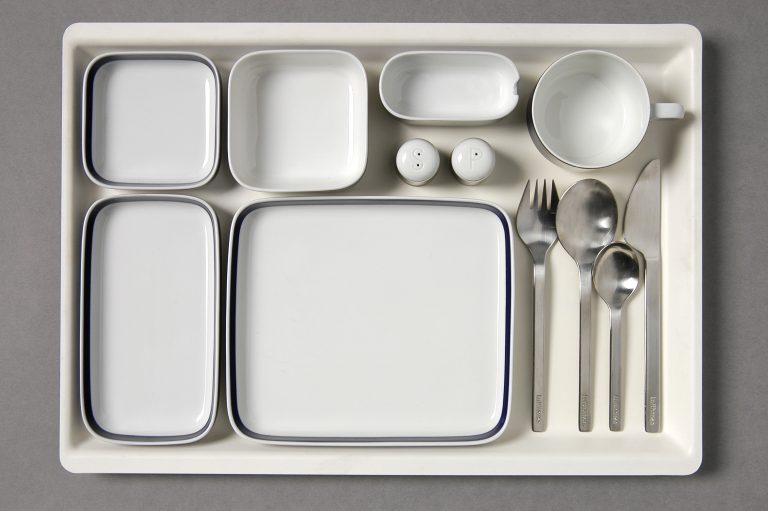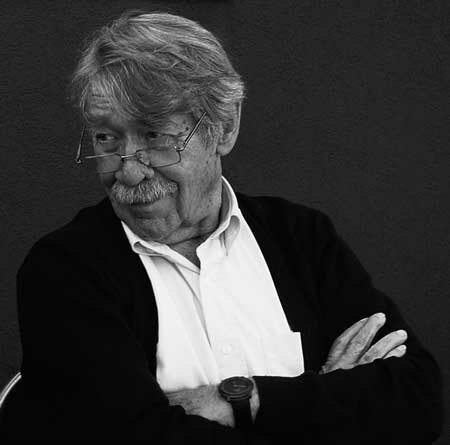Hans-Theo Baumann. From Series to One-Offs
About the Exhibition
His output has made it into the history books. Once described as “a true master of German design”, he was among the protagonists who shaped the essence of “Made in Germany” and “Die Gute Form” in the wake of World War II – advocating a timeless and aesthetic design idiom.
In 1959 Hans Theo Baumann (b. 1924 in Basel, Switzerland) was one of the co-founders of the Association of German Industrial Designers (VDID). Not only did he work with the top companies of Germany’s porcelain industry, he also joined forces with the architect Egon Eiermann, whose buildings epitomize the young German Federal Republic.
Baumann joined Philipp Rosenthal at an early stage and spent some time working in India and Japan. For more than half a century, his often prize-winning and widely exhibited designs were a decisive influence on the German design scene. Clear-cut, timeless shapes, high functionality and a holistic approach typify his richly diversified output.
Baumann’s successful products include dinner service and porcelain objects, tea and coffee pots, cups and plates, candle holders and vases. Philipp Rosenthal helped him launch his career as a porcelain designer as early as 1954. In addition to Rosenthal and Thomas, he counted Arzberg, Schönwald, Hutschenreuther and KPM Berlin among his clients, as well as other companies in Germany and abroad.
However, Baumann was not only interested in serial design, but also had a penchant for handcrafted low-volume productions and one-offs. The result: very unusual designs for the Karlsruhe-based Majolika ceramics manufactory and the Japanese porcelain manufactory Fukagawa, which are now rare and highly sought after items.
Following his training in Textile Engineering in Switzerland and a degree at the Dresden Academy of Fine Arts (1943-46), “Teddy” Baumann went to Basel where he studied Graphic Design and Interior Design at the Gewerbeschule/Schule für Gestaltung. In 1953 he spent some time working with Egon Eiermann in Pforzheim, before opening his own studio in 1955. In 1959 he was among the co-founders of the Association of German Industrial Designers (VDID). From 1954 until the 1970s Baumann worked for Rosenthal as a freelance designer. In 1969 he was appointed to the National Institute of Design in Ahmedabad, India, and in 1985 he became a professor at the Berlin University of the Arts.
Thanks to Hans Theo Baumann’s generosity and assistance, Die Neue Sammlung was able to secure a representative spread of his output as a donation. A concise selection of these will now be on show for the first time.

FAQs
A visit to the Pinakothek der Moderne costs
regular 10 Euro
reduced admission 7 euros
Sunday admission 1 euro
Children and young people under the age of 18 have free admission.
We cooperate with Kulturraum München.
You can buy a ticket at the ticket office on site or online. You can find more information on the Pinakothek der Moderne website.
You can find an overview of accessibility at the Pinakothek der Moderne on the Kultur barrierefrei München website.
The design museum also offers an inclusive touch station in the X-D-E-P-O-T, which everyone can explore independently.
We provide an overview of what is going on at Die Neue Sammlung under program. You can find out everything about guided tours and group bookings on the Pinakothek der Moderne website.
